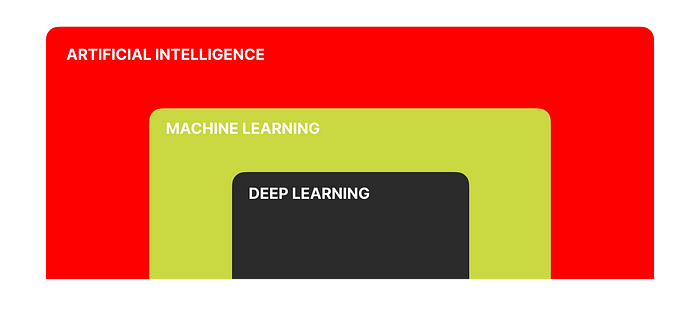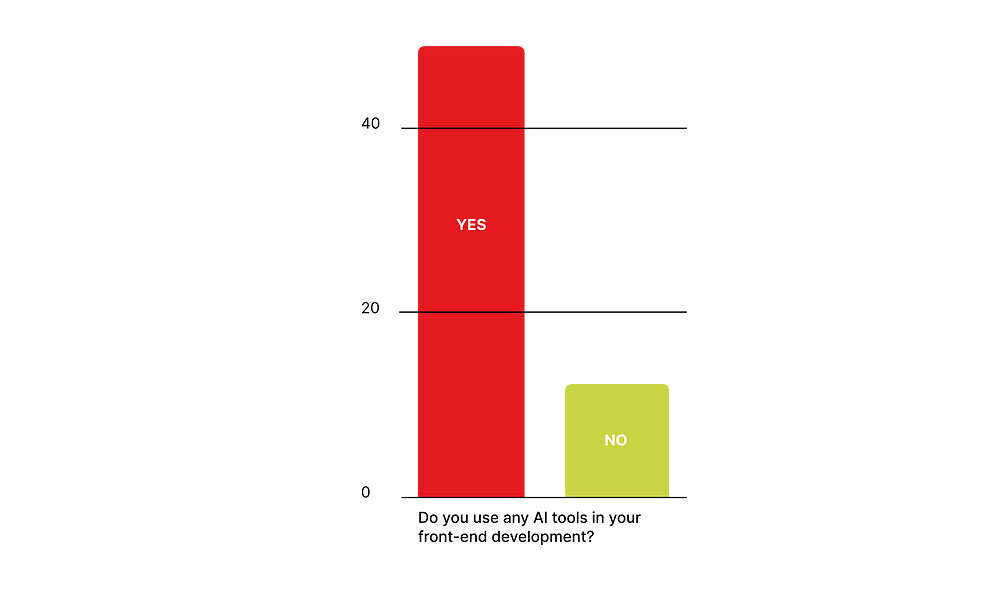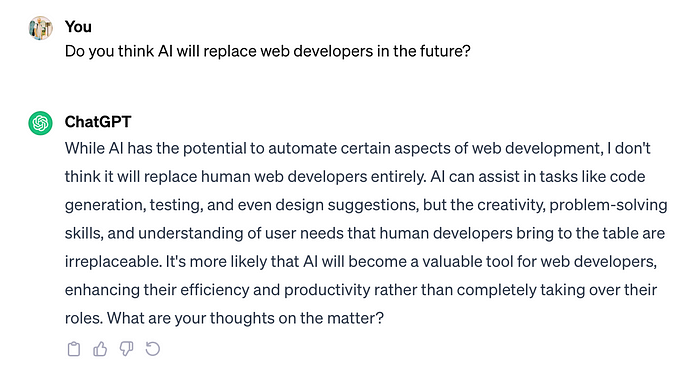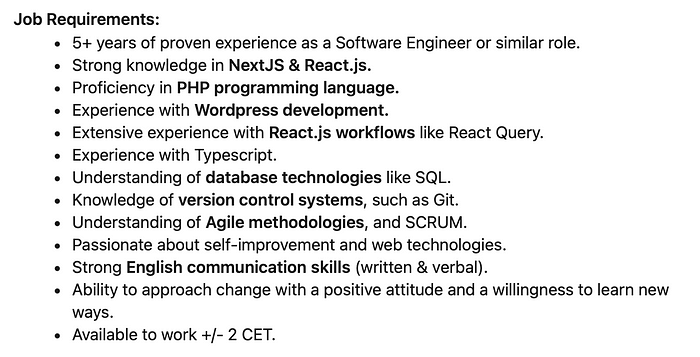The Use of AI in Front-End Web Development and Learning
AI tools are changing how we code. In this article we will find out how relevant these tools are to front-end developers on a daily basis, while making some predictions to the future of this industry. AI generated cover illustrating the future of front-end technologies
AI generated cover illustrating the future of front-end technologies
Introduction
In the fast-paced world of web development, the technology-innovation duo is constantly shaping the way we create and interact with the digital world. Recently, a real game-changer has come onto the scene — Generative Artificial Intelligence (AI), usually associated with ChatGPT. These tools are changing the way developers think, build and optimize the web. But they are also changing the way programmers learn and adapt to new technologies.
To better understand the use of these tools, we should start by understanding what specific challenges front-end developers commonly face and how AI tools address these challenges. In other words, how do front-end developers perceive the reliability and credibility of AI tools, especially taking into account factors such as privacy and security? What improvements do AI tools bring to front-end? Finally, we should try to understand what are the expectations and future predictions of front-end developers regarding the evolution of AI? In this article, we’re not just dissecting the nuts and bolts of AI, we’re going to try to reveal how it shapes learning and development in front-end technology and, with that, make some final predictions.
From old-school rule-based systems to AI-powered networks, these tools don’t just automate tasks or be “smart”. They have added a whole new layer of creativity, marking a significant shift in the entire development process. On the front-end, AI has taken center stage, optimizing code, debugging complex algorithms and even designing elements. Not just “data eaters”, these tools devour vast data sets while learning from patterns and iterating to polish the efficiency of code. Sometimes you have to try a million times to finally succeed. Where AI positions itself in current days
Where AI positions itself in current days
In “The End of Front-End Development”, Josh Comeau addresses concerns among novice developers about AI’s impact on web development. Contrary to fears of job displacement, he emphasizes the enduring importance of developer expertise. While AI can generate basic code, it lacks the nuance and reliability of human developers. Despite acknowledging AI’s potential to enhance productivity, the article underscores the irreplaceable role of human ingenuity in crafting bespoke web experiences.
The truth is that many authors have already spoken on this subject and it’s not something new. There are even daily predictions of what the future of this industry could be. For example, here at medium, Pavlo Lompas in “The Future of Frontend Development: How AI Will Revolutionize Web Design”, offers some examples of where the impact of AI could be most notable. There seems to be no definitive answer and no consensus in the community as to whether this impact will be positive or negative, taking into account possible job losses.
Now, let’s stop for a moment and turn our attention to developers. Trying to answer our initial questions, we asked them what they thought about this subject. How often are they using AI? What tools are they integrating into their workflows? How do these tools cope with challenges? Are their solutions top-notch? And how can they change workflows and project results?
Survey
We started by carrying out a survey divided into four phases, starting with an initial section to characterize the participant, followed by a section to understand what technologies they used and what problems they faced. The aim here was to understand which challenges were most common and in which technologies these problems occurred. In the next section, the participants were divided according to their use, i.e. if they used any AI tool, they would be asked different questions. Finally, there was a final section in which the participants evaluated the impact these tools have on their development and made some final considerations on the use of these technologies.
In total, we received responses from 60 programmers, 40% (n=24) of whom were employed and had at least 3 years’ professional experience in the field. The rest were front-end programming students with little or no professional experience. Nonetheless, both entities are relevant to this study and can offer broad inputs in terms of learning and knowledge on the subject. Still regarding participants, we know that the vast majority worked regularly with HTML, CSS, Javascript and React, which are also the most used front-end technologies today. When asked about the most common challenges and problems in the development process, there are similar patterns among the participants, highlighting “Debugging”, “Performance Optimization”, “Browser Compatibility”, “Backend Integration”, “Security and Privacy”, “Maintaining UX” and, at the top, “Responsive Design”. This provided a solid basis for the following sections.
Results
Moving on to what everyone wants to know about, the use of AI, 78% (n=47) of the participants say they use some tool of this type, with 50% (n=30) using them very often. The most common technologies are “ChatGPT” and “GithubCopilot”, with few references to “Bard”, “Phind” and “Snyk”. Nevertheless, it’s important to note that all the participants who said they use these tools, use “ChatGPT”, without exceptions. As we can see, for the time being, there is total domination of the industry by one company. Graph 1 — Use of AI for front-end development
Graph 1 — Use of AI for front-end development
This is the point where our participants got divided, extracting the best possible answers from each. But first, and for the purpose of this article, let’s start by analyzing the remaining 22% (n=13) of participants who don’t use any AI. Why not? Don’t they see any advantages? What guarantees would they need to start using it? Well, most of them say that they “aren’t familiar” with these tools or that they “don’t need” to use them to complete their tasks. These days, it takes some courage to say that! However, the vast majority don’t think like this. Those who use AI Tools to their advantage, said that most times these tools help them successfully solve, or come close to solving, the challenges they encounter, representing more than 50% of those participants. Besides, when asked about the quality of the solutions given by these tools, most participants consider them of high quality and refer that the impact is mainly affecting three dimensions: “Efficiency”, “Faster Development” and “Learning Assistance”. Here, it is also notable the impact on “Creativity Enhancement”, “Accuracy Improvement” and “Better Time Management”. This is very interesting and it’s showing us that nowadays, most developers are fulfilled by its usage, obtaining great outcomes. Finally, we asked these developers their opinion on the general impact of AI tools in their workflow. Curiously, 91% (n=43) said that the overall impact is positive.
Which leads us to the last section of our study. What can we expect for the future? Are we, developers, going to be replaced by AI? Should we be using these tools for learning practices? Will this be a requirement for any developer role? Prompt made to ChatGPT about the possible replacement of web developers in the future
Prompt made to ChatGPT about the possible replacement of web developers in the future
On the one hand, AI has replaced jobs, made everyday tasks easier and enhanced the creativity of any human being (apart from the fact that we’re in a golden age for students to cheat on tests). On the other, should we give it all to AI? When we asked our participants how essential this integration was in the future of web development, whether for mass production or simple learning, 62% (n=37) said “yes”, while another 32% (n=19) believed the answer was not so direct, answering “Maybe”. Unfortunately, the remaining minority of participants with a negative opinion left no comments. Fortunately, participants who used artificial intelligence in their workflow seemed very interested in this study and left lots of comments. Graph 2 — Integrating AI into front-end development
Graph 2 — Integrating AI into front-end development
Conclusions
The consensus among participants is that AI has indeed become an indispensable companion in their workflows. However, the comments received highlight a crucial point — developers must approach AI solutions with a critical mindset and a commitment to continuous learning. There is a prevailing call for programmers not to rely too heavily on AI, but to maintain a solid base of coding knowledge. The fear that these tools will become the preserve of an elite underlines the importance of programmer proficiency. Furthermore, the role of AI should be that of an assistant and not a substitute, as said by Josh Comeau previously. Programmers express the need for AI to constantly keep up to date, aligning its “knowledge” with the documentation of coding languages that are constantly evolving. Looking to the future, AI could change the need for expertise in various languages with its accessibility, however, the cautious tone suggests that the industry may exploit this change by demanding even more from programmers. Job Requirements for a Junior Developer in a Portuguese Company
Job Requirements for a Junior Developer in a Portuguese Company
Essentially, the prospects for AI in web development are very promising, balancing out the collaboration between humans and AI. The crucial factor is to approach these tools as an ally, always keeping fundamental coding skills up your sleeve. So, no, Front-End Development is not dying, it’s actually growing and starting a new paradigm.





















![[ℕ𝕖𝕧𝕖𝕣] 𝕊𝕖𝕝𝕝 𝕐𝕠𝕦𝕣 𝔹𝕚𝕥𝕔𝕠𝕚𝕟 - And Now What.... Pray To The God Of Hopium?](https://cdn.bulbapp.io/frontend/images/79e7827b-c644-4853-b048-a9601a8a8da7/1)









































![[LIVE] Engage2Earn: auspol follower rush](https://cdn.bulbapp.io/frontend/images/c1a761de-5ce9-4e9b-b5b3-dc009e60bfa8/1)


